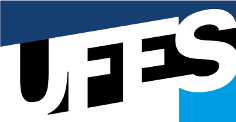AMERICAN ACCOUNTING ASSOCIATION. A Statement of Basic Accounting Theory - ASOBAT. Committee to Prepare a Statement of Basic Accounting Theory Evanston, Ill.1966.
BALL, R.; BROWN, P. An empirical evaluation of accounting income numbers. Journal of Accounting Research, v. 6, p. 159-178, aut. 1968.
BEAVER, W. H. The information content of earnings announcements. Journal of Accounting Research, v. 6, p. 67-92, 1968.
CHAMBERS, R. J. Blueprint for a theory of accounting. Accounting Research, p. 17-25, jan. 1955.
CHRISTENSON, C. The methodology of positive accounting. The Accounting Review, v. LVII, n. 1, jan 1983.
CHUA, W. F. Radical developments in accounting thought. The Accounting Review, v. LXI, n. 4, oct 1986.
DEEGAN, C.; UNERMAN, J. Financial accounting theory. Second European Edition. Berkshire, UK: McGraw-Hill Education, 2011.
EDWARDS, E. O.; BELL, P. W. The theory and measurement of business income. California: University of California Press, 1961.
GLAUTIER, M. W. E.; UNDERDOWN, B. Accounting theory and practice. 7. ed. Harlow, England: Prentice Hall, 2001.
HENDRIKSEN, E. S. Accounting theory. 3 ed. Illinois: Richard D. Irwin, 1982.
IJIRI, Yuji. The foundations of accounting measurement. Englewood Cliffs: Prentice Hall Inc. 1967.
JENSEN, M. C. Reflections on the state of accounting research and the regulation of accounting. Stanford Lectures In Accounting (Graduate School of Business, Stanford University), Palo Alto, California, 1976.
LAUGHLIN, R. Empirical research in accounting: alternative approaches and a case for .middle-range. thinking. Accounting, Auditing & Accountability Journal, v. 8, n. 1, 1995.
RIAHI-BELKAOUI, A. Accounting theory. 5th ed. London: Thomson Learnung, 2004.
SCOTT, W. R. Financial accounting theory. 6th ed. Toronto: Pearson Canada, 2012.
SPROUSE, R.T.; MOONITZ, M. A tentative set of broad accounting principles for business enterprises. New York: American Institute of Certified Public Accountants, 1962.
STERLING, R. R. Theory of the measurement of enterprise income. The University Press of Kansas, 1970.
TINKER, A. M.; MERINO, B. D.; NEIMARK, M. D. The normative origins of positive theories: ideology and accounting thought. Accounting, Organizations and Society. Vol. 7 N. 2, 1982.
WATTS, J. Accounting in the business environment. 2nd ed. London: Pitman Publishing, 1996.
WATTS, R. L.; ZIMMERMAN, J. L. Towards a positive theory of the determination of accounting standards. The Accounting Review, 1978.
WOLK, H. I.; DODD, J. L.; ROZYCKI, J. J. Accounting theory: conceptual issues in a political and economic environment. 7th ed. California: Sage Publications, 2008.
AKERLOF, G. The market for .lemons.: quality uncertainty and the market mechanism. The Quartely Journal of Econimics, p. 488-500, aug. 1970.
BRASIL. Pronunciamento Conceitual Básico. Dispõe sobre a estrutura conceitual para elaboração e divulgação de relatório contábil-financeiro com correlação às normas internacionais de contabilidade.
CHAMBERS, R. J. Accounting, evaluation and economic behavior. Sydney: Sydney University Press, 1966 [2006].
CUSHING, B. E. A Kuhnian interpretation of the historical evolution of accounting. The Accounting Historians Journal, v. 16, n. 2, p. 1-41, dec. 1989.
GAFFIKIN, M. J. R. The methodology of early accounting theorists. Abacus, v. 23, n. I, 1987.
HENDRIKSEN, E. S.; BREDA, M. F. V. Teoria da contabilidade [Accouting theory, 1992]. Tradução de Antonio Zoratto Sanvicente. São Paulo: Atlas, 1999.
IUDÍCIBUS, S. Teoria da contabilidade. 10. ed. São Paulo: Atlas, 2010.
IUDICIBUS, S.; LOPES, A. B. Teoria Avançada da Contabilidade. São Paulo: Atlas, 2004.
JENSEN, M. C.; MECKLING, W. H. Theory of the firm: managerial behavior, agency costs and ownership structure. Journal of Financial Economics, v. 3, n. 4, p. 305-360, 1976.
KOTARI, S. P.; RAMANNA, K.; SKINNER, D. J. Implications for GAAP from an analysis of positive research in accounting. Journal of Accounting and Economics, 50, p. 246-286, 2010.
LOPES, A. B.; MARTINS, E. Teoria da contabilidade: uma nova abordagem. São Paulo: Atlas, 2007.
MACINTOSH, N. B. Accounting, accountants and accountability: poststructuralist positions. London: Routledge, 2002.
MATTESSICH, R. Towards a general and axiomatic foundation of accountancy. Accounting Research, v. 8, p. 328- 355, 1957.
MATTESSICH, R. Two hundred years of accounting research: an international survey of personalities, ideas and publications (from beginning of the nineteenth century to the beginninf of the twenty-first century. New York: Routledge, 2008.
WATTS, R. L.; ZIMMERMAN, J. L. Positive Accounting Theory: A Ten Year Perspective. The Accounting Review. V. 65, n 1, 1990.
WELLS, M. C. A revolution in accounting thought? The Accounting Review, v. 11, n. 3, 1976.


